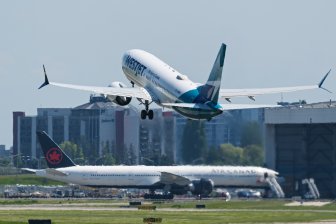About 1,200 British Columbians are still under evacuation orders and more than 34,000 are under alert as the province’s record-breaking wildfire season abates.

As of Wednesday, 392 wildfires still burned across B.C., 10 of which threaten public safety or are highly visible. By contrast, this time last year, there were 188 wildfires burning and five wildfires of note, according to the provincial government.
While many evacuated residents have now returned home, gusty winds and warm temperatures are expected to continue in the north, challenging already exhausted firefighters. Temperatures in many parts of B.C. were up to three degrees above normal last month, and as September progresses, the north is experiencing “anomalous conditions.”
“Our drought values have just been persistently getting worse and particularly in the north,” said Neal McLoughlin of the Provincial Wildfire Coordination Centre in Kamloops in a Wednesday press conference.
“We do expect to see those dry conditions will persist through the fall. A key message here is our forest fuels will remain available to burn.”

Earlier this week, Premier David Eby promised to create a new expert task force on climate emergencies that will streamline resource deployment and support for communities facing disaster.
It would advise on volunteer recruitment, work with First Nations and front-line workers and ensure support for evacuees is more accessible, he said Monday, with special attention to improving timely access to emergency funds and accommodation.
At Wednesday’s press conference, Emergency Management and Climate Readiness Minister Bowinn Ma said the province has also set up new community resiliency centres in West Kelowna and Salmon Arm to support businesses and people still grappling with the devastation of the McDougall Creek and Bush Creek East wildfires, respectively.
“Community resiliency centres are one-stop shops to assist people and businesses as they begin the transition from response to recovery,” she explained. “They bring together different resources into one place to provide supports and information from a variety of government and non government agencies.”

Hundreds of structures have been destroyed this wildfire season and two firefighters have been killed. More than 600 personnel from outside the province, including international firefighters, are still in B.C. assisting in the firefight.
Ma said the complexity of this wildfire season has taught the province many lessons, as have the other climate emergencies that British Columbians have dealt with in recent years.
“Being prepared for a future emergency is an endless job and there is always room for improvement, even as we continue to respond to the emergencies before us right now,” she said.
“… The climate crisis isn’t just knocking on our door, it has stormed into our house, and as we have seen the consequences are severe.”

Right now, all but seven of the province’s 34 water basins are ranked in the two highest classifications of drought.
Forests Minister Bruce Ralston said the province can reimburse communities or First Nations for the transportation costs of bringing in alternative drinking supplies, if needed, and is available to support them with drought planning.
Provincial officials are also coordinating with Fisheries and Oceans Canada to mitigate the anticipated adverse impacts of the warmer, drier conditions on this year’s salmon run.
A provincial state of emergency remains in effect, but is set to expire Thursday unless renewed.
- Gardeners need to watch out for these 2 worms in Ontario. Here’s why
- Talks conclude over a global plastic pollution treaty. What to know
- Satellite built by N.B. students not responding a week after entering Earth’s orbit
- T. Rex an intelligent tool-user and culture-builder? Not so fast, says new U of A research





Comments